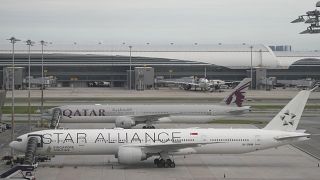Singapore
Singapore has criticized calls for more liberal policies in combating the use of illicit drugs worldwide as a special session of the United Nations considered the matter.
The UN this week brought together member states, academics, advocacy groups among others to discuss new ways of confronting illicit drug use.
The meeting was among others to find alternatives to incarceration for minor drug offenses as well as treating drug abuse as a medical issue rather than a criminal one.
But Singapore which applies the death sentence to some drug related offenses, is however not ready to soften its stance on the use and/or manufacture of illicit drugs.
“We believe that drugs will destroy our society. With 200 million people traveling through our borders every year, and given Singaporeans’ purchasing power, a soft approach will mean our country will be washed over with drugs” argued Singapore’s Minister for Home Affairs and Law, Kasiviswanathan Shanmugam.
His position represents the sharp division among the 193 UN member states on the issue of combating illicit drug use.
Singapore Slams 'Soft Approach' to Drugs at UN Meeting https://t.co/IOAdIOt9YU
— Jim Stevenson (VOAStevenson) April 21, 2016VOANewspic.twitter.com/1cqipVyWQg
The General Assembly adopted a declaration on Tuesday that some said they were disappointed with.
Some states favour a shift towards decriminalising drug-related offenses and focusing rather on the harm caused both by narcotics abuse and the war on drugs.
Denmark’s Health Minister, Sophie Lohde reminded the gathering that “ everybody, including people who use drugs, has the right to be treated with dignity.”
She however expressed the “deep regret” of her government that “the outcome document does not address the abolition of the death penalty for drug related crimes » stressing that “Denmark is opposed to the death penalty in all circumstances.”
Shanmugam however argued that it was possible “to be tough on traffickers, to be tough on drug abusers and at the same time help abusers psychologically, medically, economically without having to feed them with drugs. It is possible to help many of them kick their habit and reintegrate into society”.
He remained unconvinced that taking a softer stance on illicit drug use would improve the fight against illicit drug use.
“Show me a model that works better, delivers a better outcome for citizens and we will consider changing. If that can not be done don’t ask me to change,” he said.
Canada’s Health Minister, Jane Philpott however said her country “will apply these principles with regards to marijuana. To that end we will be introducing legislation in the spring of 2017 that ensures that we keep marijuana out of the hands of children and profits out of the hands of criminals”.
Moves by Latin American countries as well as the US to legalise the use of marijuana has proven controversial as Russia’s delegates at the special session have asked others to be weary of the trends towards legalising the drug.
Philpott however assured that “Canada will continue to modernise our approach to drug policy. Our work will embrace upstream prevention, compassionate treatment and harm reduction.”
Globally, some 246 million people are said to use illicit drugs with one in ten of these users suffering drug related disorders.













00:11
US, European allies agree August deadline for Iran nuclear deal
01:19
New US law targets fentanyl-related copycat drugs driving overdose deaths
Go to video
UN Special Rapporteur calls for concrete action on 'genocidal' Gaza occupation
01:00
Pix of the Day: July 15, 2025
01:07
Only 35% of sustainable development goals on track to meet target, UN says
01:07
UN-Russia agricultural export memorandum will not be extended